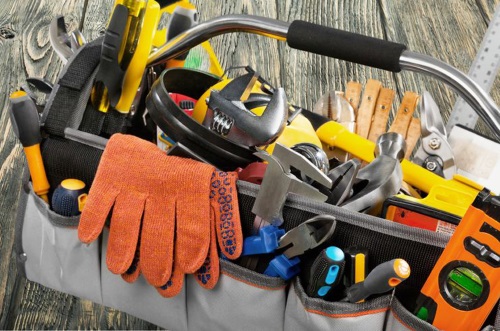It’s taken a while for me to form a rational opinion about the digital revolution in the world of audio, but I think I’ve finally reached it.
Let me sidetrack into another passion of mine for a moment to provide a starting point…
In 2009, noted motorcycle restorer Vic World built an original 1969 Honda CB750 from the ground up with vintage NOS (new old stock) parts – in less than 24 hours and in front of the press. The build itself and the collection of original parts weren’t what freaked out the reporters, it was his toolbox.
Commenting on responses from folks who have watched him work, World stated, “They’re always surprised not to see big toolboxes.” He knows what he’s doing and only carries what he needs.
Bringing this back to audio…
My first experience with digital consoles came during a large New Year’s event many years ago, where I and another engineer were hired as freelancers for the show. I worked monitors, he handled front of house.
My monitor rig took up nearly the entirety of stage left with a double rack full of EQs, a multitude of additional amplifier racks and processors, and an analog console the size of a queen mattress – all to cover a whopping dozen stage mixes.
The front of house engineer showed up with a teeny digital board and a pair of headphones. He even had to snag one of my road cases to serve as a desk at his mix position since his rig didn’t need cases.
Load-in, setup, and the show all went fine. I didn’t give the puny front of house rig much thought until we were through. I’ll never forget watching him pack his console up and roll my case back to me before I’d even collected the microphones from the stage.
The whirlwind of digital versus analog had formally begun in my mind. It took a lot of heavy tools for me to work that show, but everything there had a purpose and I used all of it.
Digital has undoubtedly expanded our options. We have a flood of choices for processing and mixing, limited only by the capacity of our wallets and hard drives. But we have to ask ourselves if more tools help in creating better mixes or are they merely serving us into the realm of mediocrity faster and more efficiently?
You can get pretty deep into most Japanese motorcycles with nothing more than a 10 millimeter wrench and a screwdriver. Add in 11- to 18-millimeter wrenches and you’ve covered almost everything else. If that’s the work paying your salary, why would you buy more?
Analog folks (a tribe that I still belong to) aren’t any better at keeping their wits about themselves when facing chronic gear lust. We like toys too, but we can’t carry ours on a flash drive; for instance, the New Year’s show required me to use a 24-foot box truck to haul everything, while the other fellow carried only a large briefcase.
Still, from my vantage point it seems that the digital crowd appears more likely to qualify as hoarders when it comes to the tools of our trade. Maybe I have one great stereo compressor in my rack whereas you have a thousand in your laptop.
Who wins? Simple. Whoever is creating better mixes. Period.
Mr. World was able to create something beautiful and truly amazing with only the bare necessities. He knew which tools would solve which problems and didn’t waste his time collecting and storing things that would never be used.
Pure skill and talent, based on years of experience, made that project happen – not an endless supply of tools. So the next time you’re considering a new gizmo, ask yourself if it will truly enable you to do your job better or, perhaps, if it’s merely serving to temporarily satisfy gear lust. Further, knowledge and experience enable us to select the right tool for the job.
For those of us working in audio, it’s first about the ear, and then the gear. Always.















